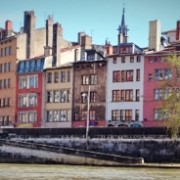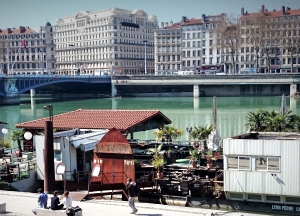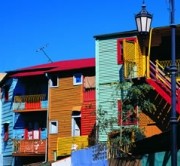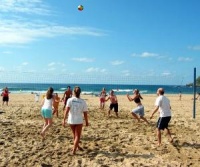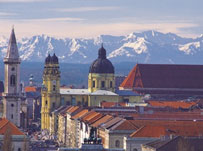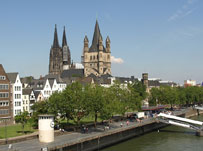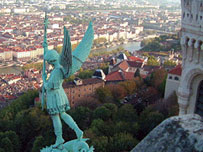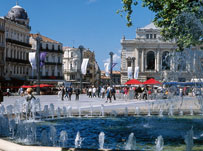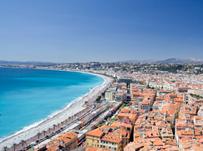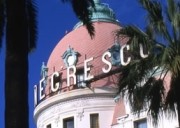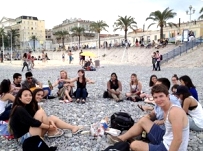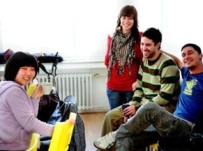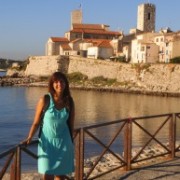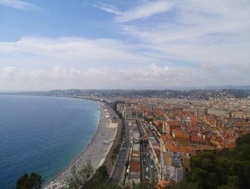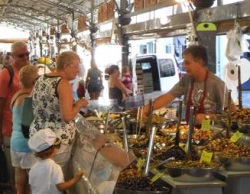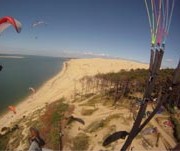Bastille Day: The best places to celebrate in France
Former Cactus intern Cécile Sargueux gives us a bit of history and top tips for celebrating ‘le quatorze juillet’ in her home country…in English / en français!
FRENCH / EN FRANCAIS
Le 14 juillet est le jour de la fête républicaine française symbolisant la Liberté et l’Egalité, et commémorant le passage de la monarchie à la République.
Histoire:
A Paris, le mardi 14 juillet 1789, des émeutiers prennent d’assaut la prison de la Bastille qui est le symbole du pouvoir absolutiste. Leur objectif est de s’emparer des armes pour pouvoir affronter les troupes du Roi. Ce jour marque le début de la Révolution française, la constitution de nouvelles règles de fonctionnement et l’instauration de nouvelles valeurs, définies dans la Déclaration des droits de l’homme. Comme ce jour a été très sanglant pour le peuple français, c’est le jour de la Fédération du 14 juillet 1790 qui est officiellement célébré, et non pas la prise de la Bastille.
Jour de fête nationale: feux, bals et défilés
Partout en France et pour tous c’est jour de fête nationale. De somptueux défilés militaires sont organisés, avec défilés motorisés, aériens et à pied, sauts de parachutistes et fanfares militaires. D’innombrables feux d’artifice sont tirés les 13 et 14 juillet, et des bals populaires et des concerts animent les villes en effervescence jusqu’au bout de la nuit ! Chaque année, flonflons, pétards, cocardes tricolores, danse et musette accompagnent l’ambiance festive, bon enfant et féérique du 14 juillet. C’est une expérience unique à vivre !
Voici 3 des villes qui offrent un spectacle fabuleux à cette occasion:
Paris:
La plus importante parade militaire se déroule à Paris. Les principaux corps d’armées sont présents, et les militaires défilent en grande tenue sous les yeux du président de la république et de la foule. Brandissant fièrement le drapeau de la nation, le cortège descend le long des Champs Elysées, de la Place de l’Étoile jusqu’à la Concorde.
L’impressionnant feu d’artifice de Paris est un de ceux qui nécessitent le plus de moyens financiers et humains en France. Tiré au pied de la tour Eiffel, on peut l’admirer depuis le Champ de Mars ou la Place du Trocadéro.
Lyon:
Un bal des pompiers est généralement organisé dans toutes les villes de France. A Lyon, les sapeurs pompiers de Gerland transformeront leur caserne en un club géant, avec une plage de sable à l’extérieur. Sur la Place de la Croix Rousse, une véritable station balnéaire prendra place, où danse, musique, transats, boissons et pétanque seront au programme. Sur les quais de Saône, 3 scènes différentes constitueront le grand bal populaire. Le feu d’artifice grandiose de Lyon partira depuis la colline de Fourvière.
Carcassonne, à une heure de Toulouse:
Chaque année, un exceptionnel et époustouflant feu d’artifice de renommée internationale embrase les légendaires remparts de la cité médiévale. Pendant 25 minutes, plus de 700 000 personnes assistent à ce spectacle inouï de lumières et de couleurs qui enflamment le ciel. C’est un des meilleurs feux d’artifices au monde !
ENGLISH / EN ANGLAIS
On the 14th of July, French Republican day is celebrated to commemorate the transition from the monarchy to the First Republic, and to symbolize la Liberté et l’Egalité (Liberty and Equality) won by the people.
History:
In Paris, on Tuesday, the 14th of July 1789, rioters stormed the prison of Bastille, a symbol of the absolutist power. Their objective was to take possession of the weapons to be able to face the King’s troops. This day marked the beginning of the French Revolution, the constitution of new rules of functioning, and the establishment of new values defined in the Déclaration des droits de l’homme (Human rights statement). Given that this day was very bloody for the French people, we officially celebrate the 14 July 1790 Fête de la Fédération, and not the storming of the Bastille.
Bastille Day: pyrotechnics, balls and parades
Everywhere in France and for everyone, this is a national day of celebration. Sumptuous march-pasts are organized with flypasts, motorised and walking parades, parachute jumps and military bands. There are many firework displays on 13th and 14th July, and cities across France celebrate with balls and concerts throughout the night! Every year, brass bands, firecrackers, dance and accordion music go with the festive, friendly and enchanting atmosphere of the Bastille Day. It is a unique event to experience!
Here are 3 cities offering a fabulous show for this occasion:
Paris:
The greatest march-past takes place in Paris. The main army corps are present, and impeccably uniformed servicemen parade before both the President of the Republic and the crowd. Whilst proudly brandishing the national flag, the procession goes down Les Champs Elysées, from La Place de l’Etoile to La Concorde. The impressive fireworks display of Paris requires the utmost financial and human resources. Fired at the bottom of the Eiffel tower, it can be watched from Le Champ de Mars or La Place du Trocadéro.
Lyon:
A Firemen’s ball (Bal des pompiers) is generally organised in every French town. In Lyon, the fire-fighters of Gerland will turn their fire station into a giant club, with a sandy beach outside. On La Place de la Croix Rousse, a real seaside resort will take place, where dance, music, deckchairs, drinks and petanque are planned. On the quays at Saône, 3 different stages will host the big popular ball. The spectacular fireworks of Lyon will be fired from the Fourvière Hill.
Carcassonne, only one hour from Toulouse:
Every year, an outstanding fireworks display, well-known all over the world, sets ablaze the ancient ramparts of the medieval city. For 25 minutes, more than 700,000 people attend this extraordinary show of lights and colors setting fire to the sky. This is one of the best firework displays in the world!
Cactus offers French courses in Paris, Lyon and many other fantastic locations in France.
We also offer evening language courses in French in London, Manchester, Bristol and other major UK locations. This is the perfect way to learn the basics or brush up on existing skills prior to visiting France!



